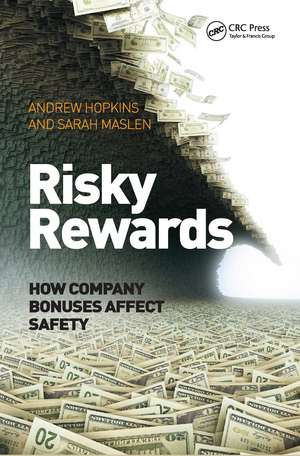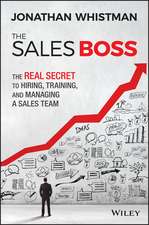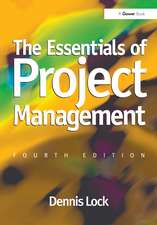Risky Rewards: How Company Bonuses Affect Safety
Autor Andrew Hopkins, Sarah Maslenen Limba Engleză Hardback – 10 feb 2015
Preț: 569.56 lei
Preț vechi: 670.07 lei
-15% Nou
Puncte Express: 854
Preț estimativ în valută:
108.98€ • 113.79$ • 90.20£
108.98€ • 113.79$ • 90.20£
Carte tipărită la comandă
Livrare economică 05-19 aprilie
Preluare comenzi: 021 569.72.76
Specificații
ISBN-13: 9781472449849
ISBN-10: 1472449843
Pagini: 186
Ilustrații: Includes 13 b&w illustrations
Dimensiuni: 156 x 234 x 22 mm
Greutate: 0.49 kg
Ediția:New ed
Editura: CRC Press
Colecția CRC Press
ISBN-10: 1472449843
Pagini: 186
Ilustrații: Includes 13 b&w illustrations
Dimensiuni: 156 x 234 x 22 mm
Greutate: 0.49 kg
Ediția:New ed
Editura: CRC Press
Colecția CRC Press
Public țintă
Academic and Professional Practice & DevelopmentCuprins
Introduction. Questioning the Value of Financial Incentives. The Problem of Rare but Catastrophic Events. Long-Term Incentives. Annual Bonuses. The Impace of Incentive Arrangements. Indicators of Major Hazard Risk. Summary, Reflections, Suggestions. The Research Process. A Sample Performance Agreement.
Notă biografică
Andrew Hopkins is Emeritus Professor in the School of Sociology at The Australian National University. He has published widely across the field of organisational safety, authoring titles including Disastrous Decisions, Failure to Learn, Lessons from Longford, Lessons from Gretley, and Safety, Culture and Risk. These books have together sold more than 70,000 copies. He speaks regularly to audiences around the world about the causes of major accidents. Sarah Maslen is Assistant Professor of Sociology at the University of Canberra. She was previously a Research Fellow in the School of Sociology at The Australian National University. Her research interests include occupational knowledge and practice, sensory perception, and risk.
Recenzii
’This is the first book to tackle this important, but controversial topic in depth with its many nuances. The authors take the reader into what for many will be the unfamiliar territory of corporate appraisals and bonuses to uncover its complexity, its principles and its contentiousness. Their case studies handily illustrate the positive and negative aspects derived from their theoretical analyses. It is a timely book given the findings of recent disaster investigations implicating unsuitable incentive schemes.’ Andrew Hale, Professor Emeritus, Delft University of Technology, the Netherlands ’This is a thought provoking book. It lays out the inherent conflicts in including process safety performance (a long term issue) in senior managers’ remuneration which almost inevitably focuses on the short term. But the book also makes clear that all major hazard industries still have a very long way to go in developing meaningful indicators of process safety performance - whether or not they are linked to individuals’ financial reward.’ Judith Hackitt CBE FREng, Chair Health and Safety Executive ’The book is an interesting and thought provoking read. It challenges conventional thinking about how firms can best incentivise managers to deliver required business outcomes, and the way they measure process safety performance.’ Safeguard, September/October 2015
Descriere
Risky Rewards engages with this debate, particularly in the context of the present and potential role of incentives to manage major accident risk in hazardous industries.
















